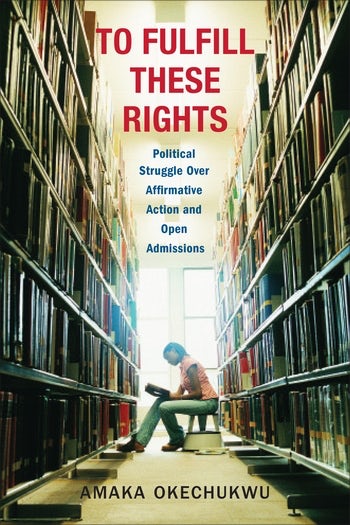Translation's Futures and the Work of Young-Hae Chang Heavy Industries — Rebecca Walkowitz
In addition to discussing the novels of authors such as J. M. Coetzee, Junot Diaz, Jamaica Kincaid, Ben Lerner, and others, Rebecca Walkowitz also discusses the work of web artists Young-Hae Chang Heavy Industries in Born Translated: The Contemporary Novel in an Age of Literature. In the following passage she discusses how their work incorporates ideas of translation and how their works fit into literary modernism and the contemporary literary scene.
Immediately below is Young-Hae Chang’s TRAVELING TO UTOPIA, which Walkowitz mentions in the excerpt.
Young-Hae Chang Heavy Industries collates a literary history of the twentieth century in which translation and translators play a central role. Pound, Beckett, Borges, and Nabokov composed and adapted their works in multiple languages, and all produced important works as translators as well as authors. Like Beckett and Nabokov, Chang and Voge practice self-translation; and like them, they treat the translated versions as new productions rather than as derivations. Yet, for Chang and Voge, the value of the translation does not depend on uniqueness. That is, while Beckett insisted that rendering En Attendant Godot in English involved writing a completely new play, Chang and Voge take a page from Borges, suggesting that translations are part of the work, that they remake the work, or that they are indistinguishable from it.
Because they suggest that translation is integral to production, Chang and Voge are altering the politics as well as the practice of translation. While Pound and other Anglo-American modernists encouraged translation into English, most were far less interested in the circulation of their own works beyond English. Pound translated in order to enrich anglophone literary culture, but Chang and Voge often demote English by concealing or removing the distinction between original and target languages. This is not to say that English is not central to their creations and to the production and circulation of those creations. English is the principal language of the Web site, and it appears at some point in most of their work. But Chang and Voge emphasize the regional and political histories in which languages function. By amplifying themes of translation and non-translation, they make languages less neutral, and in this sense they register the inequality of languages, including the inequality that functions within their own works. Pound’s commitment to incorporating multiple languages and multiple vernaculars led to a multilingualism with English at its center. Narrating translation and muting idiolect, Chang and Voge make Pound’s dream of multilingualism function multilingually. They create works not only for English literary history but also for the many other literary histories in which their works travel and in which they begin.
Chang and Voge’s renovation of literary modernism is perhaps nowhere more visible than in their approach to generalizations about Asia. Whereas Pound imagined that Chinese characters functioned literally rather than semiotically—that they visually resembled or embodied what they named—Chang and Voge use multiple layers of translation to deactivate associations between language and culture and to critique fantasies of authenticity and unmediated knowledge. MORNING OF THE MONGOLOIDS reverses rather than replaces stereotype: it generalizes about white metropolitan racists and declines to represent Korean speech directly. Instead of fantasies of the Orient, TRAVELING TO UTOPIA offers us a fantasy of French pluralism and then goes out of its way to point out the fallacy of pitting French liberty against Korean constraint. Chang and Voge resist national synecdoche—the association of physical or linguistic characteristics with a single collectivity—by creating parts or versions of works that cannot be allocated neatly or placed within coherent wholes. A final thought about synecdoche: it would be difficult to anthologize Chang and Voge’s works in any strict collection of Korean writing, women’s writing, or even global anglophone writing. The works fit uneasily into categories of this sort. They also clash with an additive model of world writing in which expansion includes everything, and on the same terms.
The works of Young-Hae Chang Heavy Industries route the future of world literature through the history and technology of translation…. Chang and Voge’s digital artworks share many of the born-translated qualities I have discussed in prior chapters. They emphasize the relationship between language and citizenship. They explore technologies of reproduction. They incorporate visual and verbal cultures of translation. And they use global circulation as an opportunity to generate new models of literary and political belonging.



